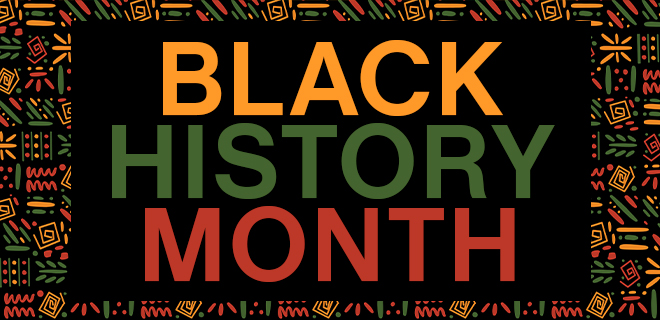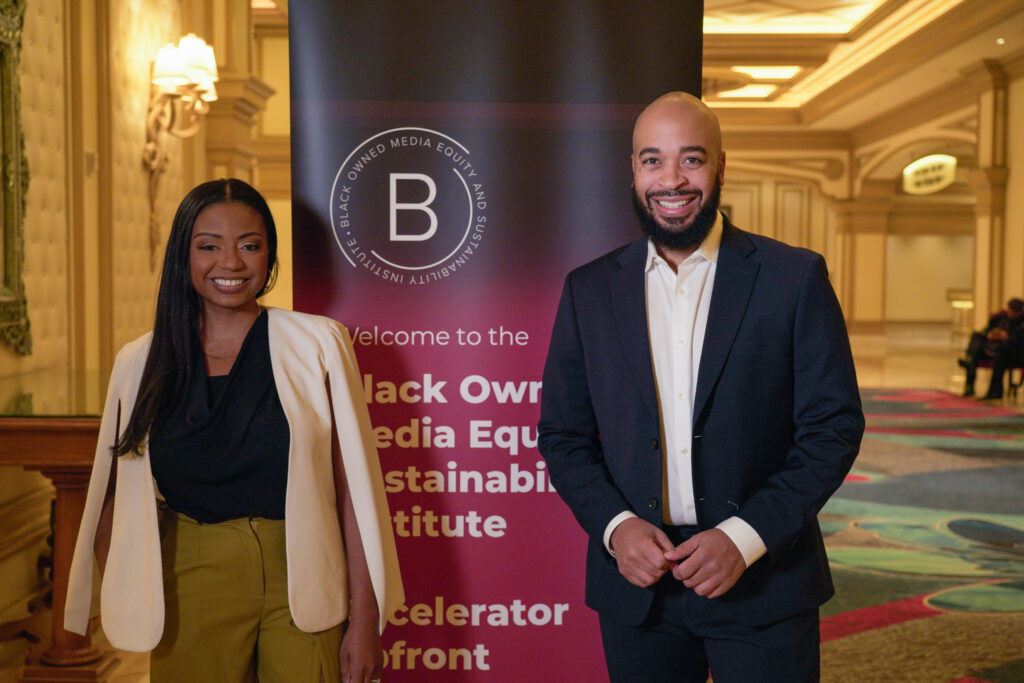
Nearly four years ago, the pandemic stopped the world and made everyone sit and reflect on the state of their lives. Some picked up new hobbies to pass the time. Others, like Black Owned Media Equity and Sustainability Institute (BOMESI) Co-Founders DéVon Christopher Johnson and Rhonesha Byng, took the time to create change.
Amid a global pandemic and racial reckoning in the U.S., The founders created the nonprofit BOMESI to support Black-owned media businesses and educate the public on their importance.
Johnson (BleuLife Media Group) and Byng (Her Agenda) were already entrepreneurs in their own rights. Still, they saw a need to create an organization to uplift the Black media space.
“In 2020, I was sitting in the same Harlem apartment where I launched my company, BleuLife Media Group, and realized the need for support. I texted friends, expressing my desire to start a nonprofit holding individuals and organizations accountable for their promises,” said Johnson. “After 15 years in the industry, I hadn’t secured a major advertising contract, despite assurances from others in the field. My goal was to ensure equal opportunities for myself and others facing similar challenges.”
Prioritizing Equity Over Equality
One of the central tenets of BOMESI is the idea of equity. But the question is, what does true equity look like? Byng saw the importance of equity once she understood the systems of power at play. Unfortunately, Black and diverse-owned media companies are at a deficit because of the history of systematic discrimination and prejudice.
“For me, the crucial aspect is equity and how we can provide the necessary extra support. How can we actively address the imbalance, particularly in areas like business, revenue, and advertising, where Black-owned media often gets overlooked or not considered at all,” said Byng.
How can we actively address the imbalance, particularly in areas like business, revenue, and advertising, where Black-owned media often gets overlooked or not considered at all," said Byng.
It wasn’t until the aftermath of George Floyd’s death that Byng heard from a holding company, despite being in the industry for over 16 years. She identified a need for a significant upfront investment to truly achieve equity.
Yet, many are hesitant to embrace this approach as it requires disrupting current business practices and implementing new systems. Byng adds, “It’s not as simple as fitting us into a pre-existing framework like other media outlets; it demands a fundamental shift in how business is conducted.”
Over the past couple of years, BOMESI has steadily worked to ensure that Black-owned media businesses can carve out a space for themselves and not simply scrap for a seat at the table that does not make space for them. However, as Johnson points out, the issue in Black business ownership, particularly in media, is that they’re often limited to just one platform.
Mainstream media perceives them more as charity than a competitive business. BOMESI strives to change that perception and build a viable Black-owned media industry — not just as creatives, but as real sustainable businesses.
The need for recognition of Black-owned media as a viable industry has led to the misconception that there isn’t demand. BOMESI is changing that narrative by establishing a robust ecosystem of 251 independently owned black media outlets. The organization prioritizes majority Black ownership, rather than just targeting a Black audience or creating Black-centric content.
The Three Pillars of BOMESI
To transform these ideas into actionable solutions, Johnson and Byng established three foundational pillars for BOMESI, aimed at guiding Black-owned businesses on their path to sustainability.
Pillar 1 is ecosystem building. This involves creating a database of Black-owned media companies, fostering relationships between media owners and advertisers, and educating the public. One of the first things BOMESI did as an organization was create a database of media companies that were at least 51% Black-owned, independent, and producing fact-based journalistic content and stories.
Pillar 2 is education. BOMESI trains Black-owned media publishers on audience growth, SEO, revenue, and programmatic advertising. They also educate brands about equitable media buying practices. Byng and Johnson understood that, outside of legacy publishers, many Black-owned media businesses needed more knowledge and experience on the ins and outs of the programmatic supply chain.
Pillar 3 is economic empowerment. This includes BOMESI’s Accelerator program, which grants mentorship to selected companies. They also occasionally foster deal flow by connecting brands to media sites that meet campaign needs, even if sites need support implementing technologies.
Intentionality, Authenticity and Long-term Commitments
Despite the rumblings of the “era of diversity” coming to a close, the business case for diversity is already evident. Numerous reports highlight the increasingly diverse future consumer base. Advertising aims to attract new customers and boost sales, so the question arises: who are advertisers’ campaigns targeting?
Johnson asserts that if a brand isn’t interested in appealing to diverse audiences as customers, they should be transparent about it. However, if they use diverse representation in their advertising but neglect to invest in black-owned media, that’s a concerning disparity that merits further investigation. But with a nonprofit like BOMESI working to curate a sustainable Black and diverse-owned media ecosystem, you can rest assured that diversity and equity are not just passing trends.
To the broader media industry, Byng provides three essential principles for furthering change:
- prioritize intentionality
- focus on authenticity,
- and understand the importance of long-term commitment to real change.
“Intentionality means actively seeking out new Black-owned media partners and deliberately expanding investment in this space. Authenticity involves respecting and understanding the perspectives of Black-owned media businesses and their audiences, acknowledging their authority in their communities, and fostering genuine collaboration. Regarding long-term commitment, progress won’t happen overnight. It requires sustained investment and partnerships to repair past deficits and create an equitable ecosystem for Black-owned media. This entails moving beyond one-off campaigns and embracing long-term collaborations and commitments,” said Byng.

